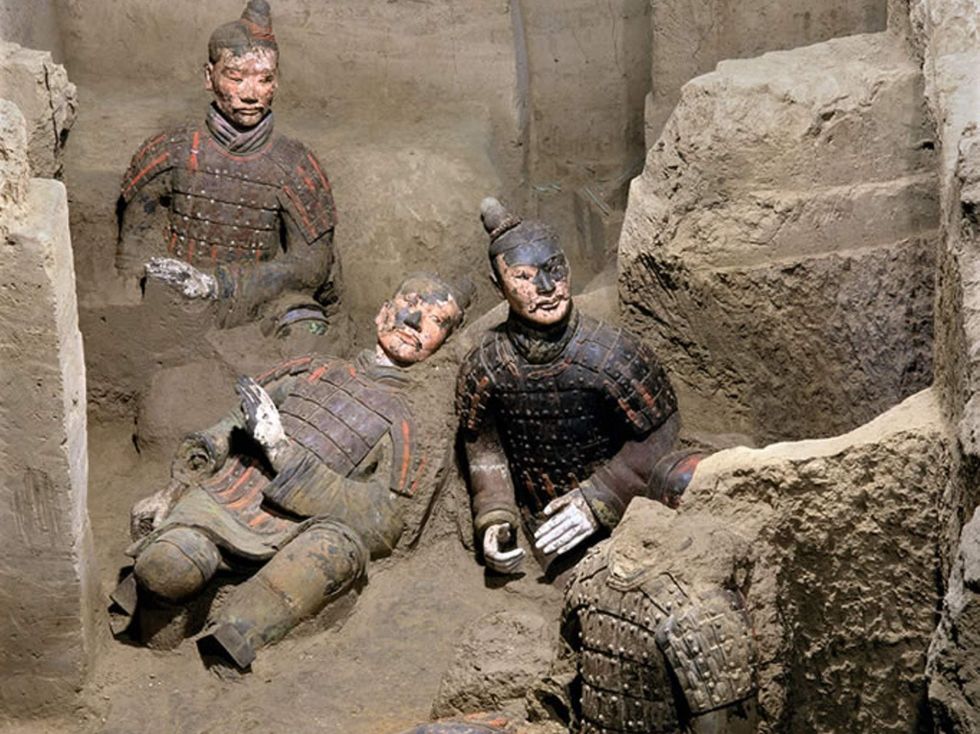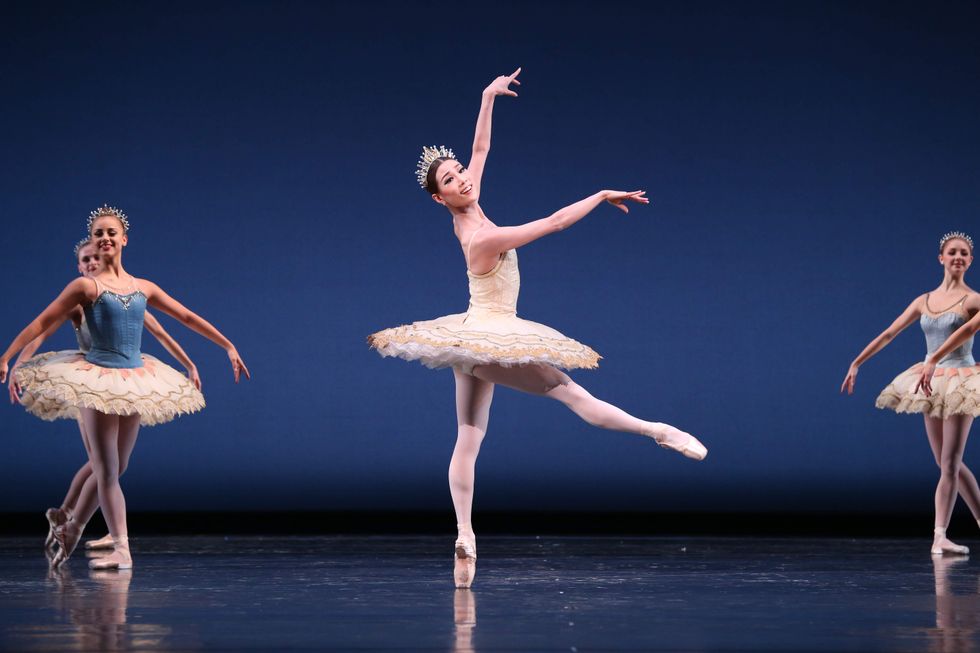It's complicated
Houston Grand Opera's thought-provoking Fidelio boosted by extraordinary singingof Karita Mattila and dream cast
 Karita Mattila as Leonore and Kristinn Sigmundsson as Rocco in Houston GrandOpera's production of FidelioPhoto by Felix Sanchez
Karita Mattila as Leonore and Kristinn Sigmundsson as Rocco in Houston GrandOpera's production of FidelioPhoto by Felix Sanchez Brendan Tuohy and prisoners from Houston Grand Opera's production of FidelioPhoto by Felix Sanchez
Brendan Tuohy and prisoners from Houston Grand Opera's production of FidelioPhoto by Felix Sanchez Simon O'Neill as Florestan in Houston Grand Opera's production of FidelioPhoto by Felix Sanchez
Simon O'Neill as Florestan in Houston Grand Opera's production of FidelioPhoto by Felix Sanchez A scene from Houston Grand Opera's Fidelio, with Karita Mattila as Leonore andBrittany Wheeler as MarzellinePhoto by Felix Sanchez
A scene from Houston Grand Opera's Fidelio, with Karita Mattila as Leonore andBrittany Wheeler as MarzellinePhoto by Felix Sanchez
Oppression and liberation have a face-off in the first moments of Beethoven’s overture to his only opera, Fidelio. A full, bombastic orchestra dominates a quiet yet persistent choir of woodwinds in just the first few phrases. Long, harmonic downbeats persist as the music progresses. By the conclusion, however, the texture thickens to the point that it’s not quite clear exactly which side has won the fight.
I thought about this evident opposition on Friday night while driving home from the opening of Houston Grand Opera’s production. I’d just left the wealthy, well-dressed crowd in the Wortham Theater Center. A few minutes later, I was stopped at a downtown light, waving and honking my horn at the weary participants of Occupy Houston.
Great works often lead us from abstractions to particularities, and vice versa.
Is the sadistic prison governor Don Pizzaro (given a terrifying portrayal here by Tómas Tómasson) that far from an American president who jails U.S. citizens without due process, or who assassinates them and then expects the rest of us to cheer his actions? Some will say that I’m being too political. In the end, however, the most successful operas usually mix with your personal experience, whether you want them to or not.
The magnificent Fidelio straddles these two domains in a way that has captured the imagination of opera-lovers for more than two centuries. Even Jack Kerouac, iconoclastic American poet and novelist, succumbed to its charms in the late 1940s.
He describes his arrival in Denver, dressed “like a bum,” in his epic masterpiece On The Road. Days later, he had a well-dressed blonde woman at his side and was chatting with the elite under crystal chandeliers. “I was so interested in the opera that for awhile I forgot the circumstances of my crazy life and got lost in the great mournful sounds of Beethoven and the rich Rembrandt tones of his story,” he wrote.
Anyone who has seen the opera has likely had a similar experience. As I sit writing this review, a recording featuring Christa Ludwig and Jon Vickers (conducted by none other than Otto Klemperer) plays in the background, reminding me of the strong emotions I’ve felt over the years. Fidelio was the first work I saw staged at The Metropolitan Opera, in 1978 with the mighty Karl Böhm conducting.
At that time, many of its complicated themes eluded me. I didn’t quite understand that Leonore and Florestan, those oppressed, are nonetheless formerly privileged aristocrats. Houston Grand Opera’s production provokes even more myriad feelings and concepts, conveyed through extraordinary singing by a dream cast.
A modern police state
German director Jürgen Flimm makes his HGO debut with a decidedly untraditional setting of the action in a modern police state. American set designer Robert Israel has given us a prison that could exist comfortably in any cinematic Cold War thriller from Hitchcock’s Torn Curtain to Henckel von Donnersmarck’s more recent The Lives of Others. It’s the little touches that matter as well as the big ones. A sort of 1950s iron and ironing board, or what appears to be a mid-20th century flashbulb camera, give a slightly nostalgic feel. Guns and roses are the foremost props in the opening scene, a clever touch.
Florence von Gerkan’s costumes are even more timeless, ranging from a 19th century hand-sewn feeling (in particular, for the lower class Marzelline and her father, Rocco) to the impersonality of East Berlin military uniforms in the post-WWII period. She’s dressed the entire male chorus of prisoners in white rags, some of them even shirtless, which suggests their innocence and purity.
Lighting designer Duane Schuler and associate lighting designer Michael James Clark illuminate the scenes in a similar vein, using police interrogation lights or fluorescent institutional prison bulbs to augment the paranoia and suspicion. When the action moves to the dungeon below the prison in the second act, Florestan sings his opening aria reduced to a silhouette at the edge of a cistern, his intended grave. “Gott! Welch’ dunkel hier!” he exclaims, perhaps the climax of the entire opera, and the setting from the creative team only reinforces the terrifying gloom.
A feminist work
I hadn’t necessarily contemplated Fidelio as a feminist work, either, but there is something about the brilliant, strong voice of Finnish soprano Karita Mattila that further emphasizes this evident fact. Her singing won’t let you forget that it’s a fearless woman who is taking all the risks in this opera. When she wants to immerse the audience in beauty, she does. Her thrilling voice dominated the stunning quartet, “Mir is so wunderbar,” in the first act, not to mention the rousing chorus in the finale. “We can never praise too highly a wife who is her husband’s savior,” the chorus reminds us, and Mattila is without doubt worthy of such limitless praise.
Is there a chance that she will return in some capacity for HGO’s Ring cycle?
New Zealand tenor Simon O’Neill is a powerful Florestan to Mattila’s Leonore, his dark entrance in Act II, with a seemingly endless appeal to God’s mercy, is perhaps one of the most difficult entrances in all of western opera. He has a glorious hero’s voice. When he implores the forces that be to illuminate his plight, he uses Beethoven’s ascending lines to reveal the character’s emotions along with convincing dramatic acting. O’Neill can be hauntingly quiet, too, as demonstrated in the final lines of his aria: “let not the star of the weary fade.”
The talented young German conductor Michael Hofstetter gives the score plenty of space without losing its impetus. I was particularly impressed with the Zen-like swollen pause he used before the amazingly soft beginning of the prisoners’ chorus, which celebrates their longing for open air (“In freie Luft.”). That little gap, with the entire chorus motionless, reminded me that America has the highest incarceration rate in the entire world.
There are plenty such moments in Fidelio. This intriguing staging evokes painful reminders of world events past and pending. Is the sadistic prison governor Don Pizzaro (given a terrifying portrayal here by Tómas Tómasson) that far from an American president who jails U.S. citizens without due process, or who assassinates them and then expects the rest of us to cheer his actions? Some will say that I’m being too political. In the end, however, the most successful operas usually mix with your personal experience, whether you want them to or not.





